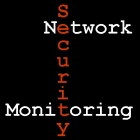Snort Add-Ons
Over the last few days I've reviewed several add-ons for Snort. First, everyone using Snort knows about Barnyard . Barnyard processes the output from the spo_unified plugin, which Marty first described in June 2001 . spo-unified creates two log files. To paraphrase Marty, the alert file contains event data (generator, sid, rev, classification, priority, event_reference), timestamp, source IP, destination IP, source port, destination port, protocol, and TCP flags (if applicable). The log file contains the event data, flags that indicate the nature of the stored packet (reassembled fragment, etc.) and the raw binary packet. Barnyard reads unified output and sends the results to other plugins. In most cases those are database plugins. MudPit is an alternative to Barnyard. Mudpit was written to overcome the fact that receiving either alert or log data can be insufficient to validate an event, but receiving both simultaneously is wasteful. At the Sguil project we use...


